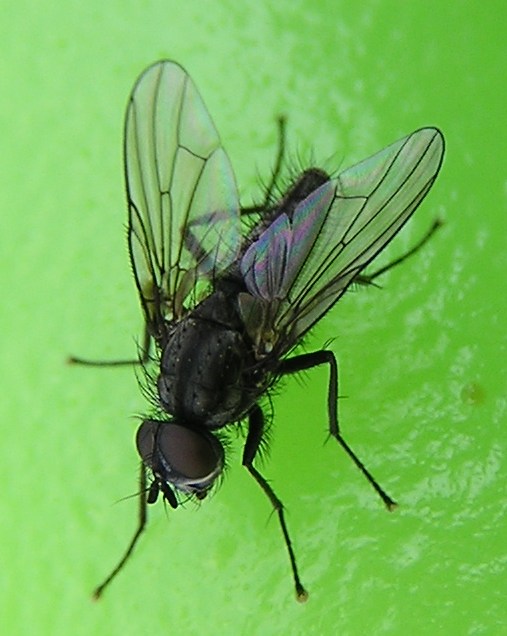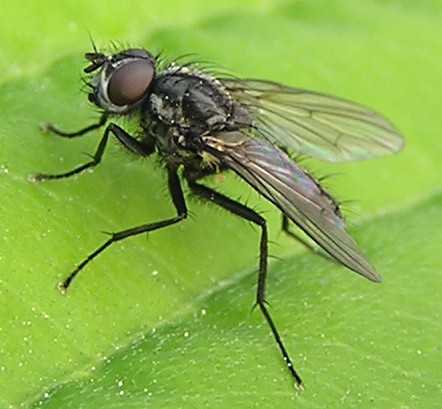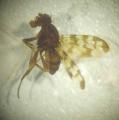Diptera.info :: Identification queries :: Diptera (adults)
|
Delia radicum (was Slender muscid(?))
|
|
| Michael Becker |
Posted on 10-05-2008 05:40
|
|
Member Location: Germany, Neuss Posts: 1268 Joined: 16.01.07 |
Hello, in this weeks I have really a lot of these flys in my garden in western germany. What species (genus or what else) is it? Thanks, Michael Michael Becker attached the following image:  [67.84Kb] Edited by Michael Becker on 13-05-2008 05:20 |
|
|
|
| eguzki |
Posted on 10-05-2008 09:08
|
|
Member Location: Perkáta, Hungary Posts: 1140 Joined: 12.10.06 |
Hello Michael! I think it is an Anthomyiid fly. this species (or very similar to that) also occur by the dozen in Hungary but nobody could help me with the genus so far. But it is true that I do not know how many similar species are exist in Europe. Greetings, Tomi |
|
|
|
| Michael Becker |
Posted on 11-05-2008 05:58
|
|
Member Location: Germany, Neuss Posts: 1268 Joined: 16.01.07 |
Hello. I compared some older threads with Anthomyiidae. Could this be something from genus Lasiomma? Michael |
|
|
|
| Michael Ackland |
Posted on 11-05-2008 11:12
|
|
Member Location: Dorset UK Posts: 680 Joined: 23.02.08 |
I can''t really see any useful characters, but a guess might be Delia radicum L. male. Under the wing on the right there be some dense setae (on the hind femur at the base; this is a character of radicum (male). Also there appear to be no anterodorsal setae on the middle tibia. D. radicum is a pest of Brassicae, and appears in large numbers. Catch some and photograph the hind femora Michael |
|
|
|
| Michael Becker |
Posted on 12-05-2008 20:01
|
|
Member Location: Germany, Neuss Posts: 1268 Joined: 16.01.07 |
I made some new pictures today. Perhaps now some characters can be seen? Michael Michael Becker attached the following image:  [54.27Kb] |
|
|
|
| Michael Ackland |
Posted on 12-05-2008 21:24
|
|
Member Location: Dorset UK Posts: 680 Joined: 23.02.08 |
It is Delia radicum L. The rather dense setae and hairs on the basal half of the hind femur (which are now clearly visible) are longer towards the base, and become more dense there. Also as I suspected the mid tibia has no ad seta, and the acrostichal setae are very short. Can you alter the subject to Delia radicum, saves me time re-opening the thread? |
|
|
|
| Michael Becker |
Posted on 13-05-2008 05:23
|
|
Member Location: Germany, Neuss Posts: 1268 Joined: 16.01.07 |
I think this was my first anthomyiid, where the pictures were enough for an identification. Thank you very much for this. I will upload the two pictures to the gallery. Michael |
|
|
|
| Jump to Forum: |












